Even passage of missile affects harvest: Scientist explains how war destroying Ukrainian soil
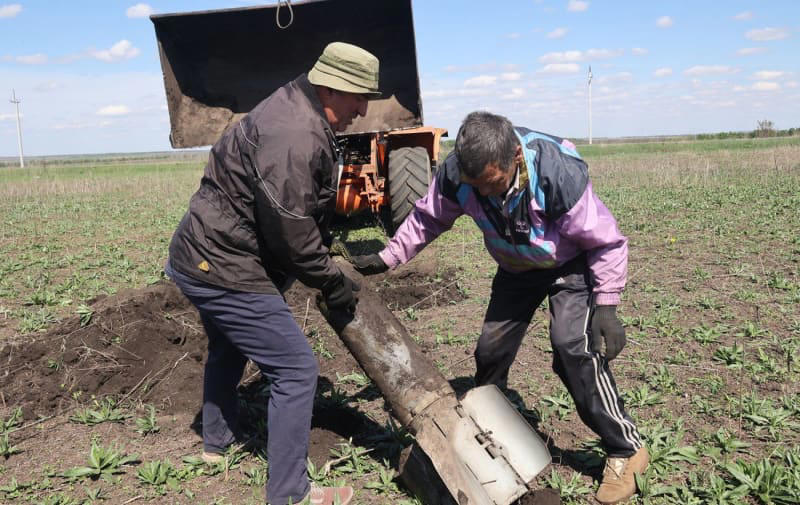
Scientist explains how war destroying Ukrainian soil (photo: gettyimages.com)
Due to the war in Ukraine, according to various estimates, over 5 million hectares of arable land are not being used. These are territories that have been damaged due to combat actions.
Ukrainian Scientist Liudmyla Biliavska from the Institute of Microbiology and Virology, named after D.K. Zabolotny, explained to RBC-Ukraine how the war is damaging Ukrainian soils and why crops cannot be grown in areas affected by explosions.
Damage caused by war to agricultural lands
According to approximate estimates by scientists, about a third of the areas used for growing grains have suffered due to the war. During explosions and military vehicle operations, a large amount of toxic substances, including explosives and heavy metals, seep into the soil, causing chemical damage.
As the Institute of Microbiology and Virology noted, grass does not grow around the fire points, and wheat seeds do not sprout from the soil under burnt military equipment.
During war, soils also undergo mechanical and physical damage, such as compaction due to heavy machinery or displacement due to explosions.
"Physical and mechanical damage can be seen with the naked eye, but to determine the chemical impact, analysis is necessary because there is an impact of thermal shock, explosion, and soil rupture. In addition, the biological component of the soil is destroyed - microbiota, humus, and other substances responsible for soil biological activity practically burn out," explains Liudmyla Biliavska.
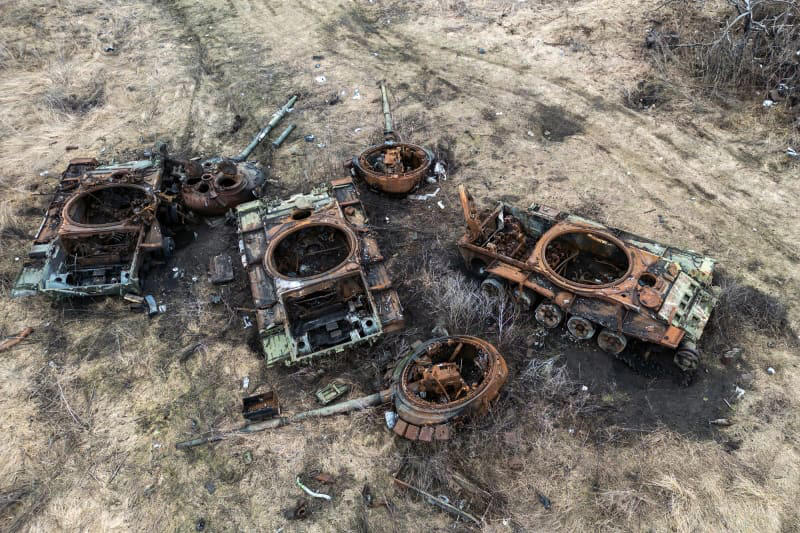
Photo: Wheat seeds do not germinate at all in the soil from burned military equipment (gettyimages.com)
The scientist adds that even the territories over which rockets flew suffered damage. Rocket fuel residues settle on fields and enter the soil and plants.
"There was a case when an agricultural enterprise from the Kharkiv region, which grew organic produce and sold it to Europe, found toxic substances in their grain, although there were no direct combat actions. However, rockets flew over them - and toxic substances and heavy metals from rocket fuel were found in the grain," the microbiologist explains.
In soil samples - heavy metals exceed by 10-20 times
Since 2022, employees of the institute have been collecting soil samples from areas directly affected by combat operations. Among the sampling locations are craters from missile strikes, bombs, mines, fire points, and burning military equipment.
"For the second year, we have been researching soil samples from Kyiv, Sumy, Donetsk, Chernihiv, Kharkiv, and Kherson regions. For example, the military collected soil for us from Bakhmut, and we analyzed them. We identified contamination with heavy metals and explosive substances and tested our biotechnologies to restore those soils," - says Liudmyla Biliavska.
Scientists at the institute found explosive substances in some soil samples, while in other cases, there were significant excesses of heavy metals—by 10-20 times: mercury, arsenic, lead, iron, copper, and chromium.
"If these substances are not converted into an inaccessible form or removed from the soil, they remain there for a long time. They can be leached into water to a certain depth," she notes.
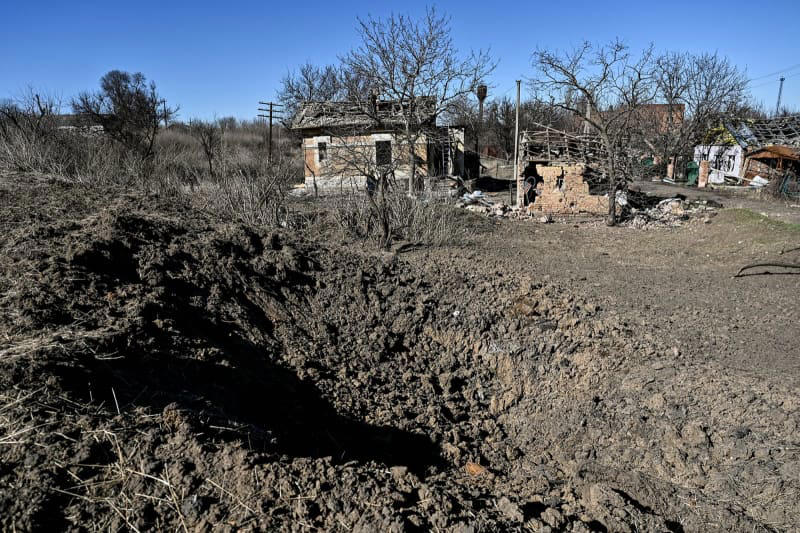
Photo: Heavy metal content is 10-20 times higher in the explosion sites (gettyimages.com)
Plants can absorb heavy metals. Thus, harmful substances can enter the human body through plant-based foods or meat if an animal consumes plants that accumulate metals from the soil.
"If toxic substances accumulate in the human body, it leads to various diseases, even severe forms like cancer. It's like a time-delayed bomb, where damage isn't immediately visible but will impact generations of people," warns the microbiologist.
Why agricultural crops cannot be grown at explosion sites
Substances that enter the soil during explosions remain in the crater without special treatment of the area. The scientist explains that where tanks burned or artillery fired, the area is scorched, leaving a spot where vegetation only gradually regrows over time.
"Plowing will not be effective because the soil is not alive in that area. The burnt soil - both the biological components of the soil and humus are destroyed, and the bacteria that should be there to make the soil alive are practically eliminated. Time must pass for everything to regenerate," Biliavska noted.
According to her, there are several ways to clean the soil.
"You can immediately treat it with bacteria that break down and neutralize toxic substances, if possible - treat the crater itself. If that's not possible, then plow and treat the entire area with microorganisms that break down toxic substances and sow phytoremediation plants to extract and clean them from the field," explains the scientist.
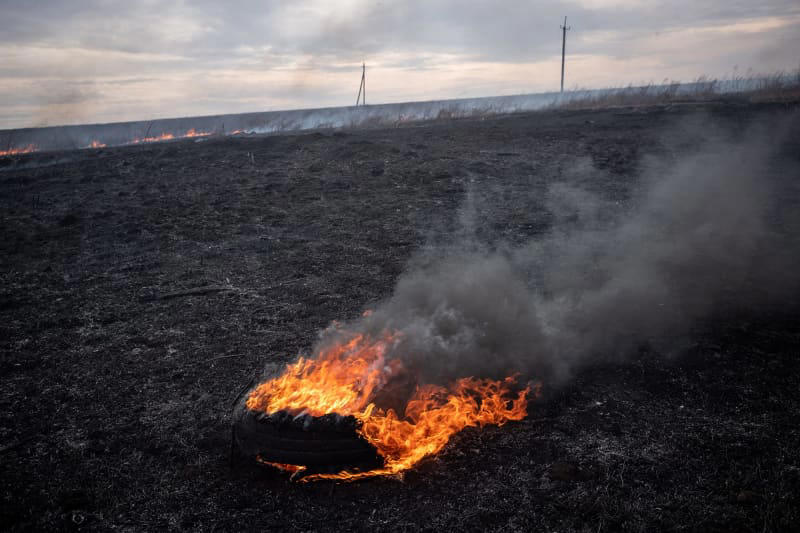
Photo: Microorganisms die in the scorched earth and humus is destroyed (gettyimages.com)
Meanwhile, on some damaged plots, neither phytoremediation plants nor weeds grow.
"Where oil products spilled, nothing has grown for two years. Without restoration, microbial technologies will be impossible to restore such soil," the expert notes.
If farmers sow damaged plots immediately, they need to treat the seeds with appropriate substances to help the plants grow and then test for any toxic substances and heavy metals in the produce.
How to restore soils damaged by war
According to Lyudmyla Bilyavska, soil research continues as part of the Academy of Sciences project "Accelerated Restoration of Soils Affected by Warfare," which uses microbial biology and phytoremediation.
"Currently, only microorganisms can accumulate, break down, or convert these toxic substances into an inaccessible form. There is no other way to dispose of them. To restore soils, it is precisely necessary to restore the biological activity of the soil, specifically its microbial component," explains the scientist.
She notes that in other countries, war-damaged soils were preserved for decades.
"In France and Vietnam, they preserved and planted plants and trees. But it mainly concerned non-agricultural soils. We don't have so much time to preserve soils. They used chemical absorbents, but we cannot use them because it would also impact the environment," Lyudmyla Bilyavska emphasizes.
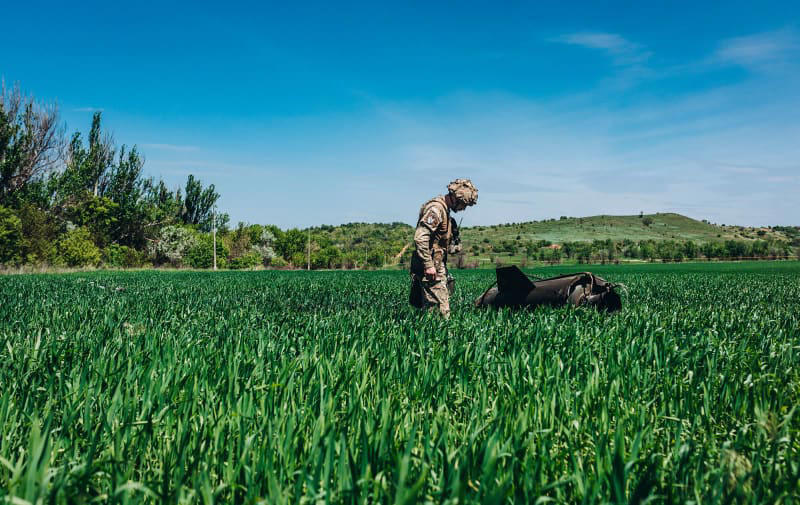
Photo: A rocket in a field near Lysychansk (gettyimages.com)
Modern biotechnologies allow for the use of the area quickly because they accelerate the decomposition of toxic substances and convert them into an inaccessible form.
"In six months to a year, plants grow and develop better in areas where microbial biotechnologies were applied. This makes it possible to use these lands over time. It may even be possible to clean them from toxic substances, agrochemicals, and pesticides already in the soil earlier," explains the specialist.
The production of such preparations is partially carried out in the institute, but mainly agricultural producers who previously used biotechnologies approach them.
"And there is no mass application. No one worries about if they wrap it up and the plants grow. They turn to us when a problem arises," she says.
The soil restoration complex from toxic pollution costs approximately $100-150 per hectare.
In addition to biopreparations for soil restoration, the institute is developing technology for soil remediation using plants that "extract" toxic substances, including the help of coriander and clover.
